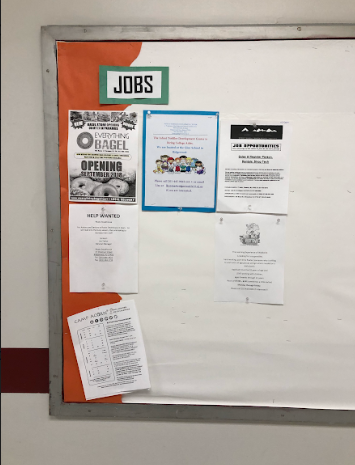Ridgewood High has so many sports, extracurriculars, activities, and clubs to offer that students’ schedules are filled to the brim from September to June. But should students also choose to pursue jobs?
Teen employment rates in the US are at a record low; in 2017, only 20% of all high school students (from the U.S. Department of Labor) were working either part or full-time jobs, down from nearly 50% in the 80s and 90s. Especially since the 2008 recession, teen jobs haven’t been in the spotlight.
But there are definite benefits to having a job, though. One of the biggest things teens can take away from any job is money management. Having a consistent paycheck gives teens experience with money and the responsibility of managing their income. On top of that, job experience, connections with employers and colleagues, and getting comfortable with a work commitment and schedule all have benefits in the long run.
Stephen Enright, a sophomore, worked for Keehn Landscape Contractors Inc. over the summer, a landscaping and construction company based in Hackensack. I asked Steve if he felt that he took a lot away from the experience and he said, “[I] benefited from working and getting a paycheck because I furthered my knowledge on how to manage my finances,” and when I asked about his hours, he said that “I woke up at 6:00 AM on most days… I had the best sleep schedule while working.”
Experience, like this, teaches kids life skills that will be used more regularly and hold more importance in their lives than what they are necessarily learning in the classroom. Over the summer, there’s definitely opportunity and time to put yourself out there and find a job, which is exactly what Enright did. And in his case, his employment paid off across the board, giving him financial experience and skills in time management.
But what about jobs throughout the school year? There’s one glaring issue with this though: time. Again, student schedules are so packed that adding more responsibility means more things on your mind and more stress. But does it? Do jobs have a different kind of benefit than school-oriented responsibilities do? And in any case, should teen jobs be valued over school commitments?
It really depends. If a job stands out to you, go for it. There are absolutely benefits you can take away from working, which really do have an impact in the long run. Assess your situation, and seek employment if it’s the right fit.
Jobs do mean more work, but that work pays off—and not only by raising the number in your bank account. Employment gives you an incredibly valuable experience, and that experience may provide you with a headstart when you go to get your first job out of school.
Looking for work? There’s a job board across the hall from the main office.
Logan Richman
staff writer
Graphic: Ryan Rhew

